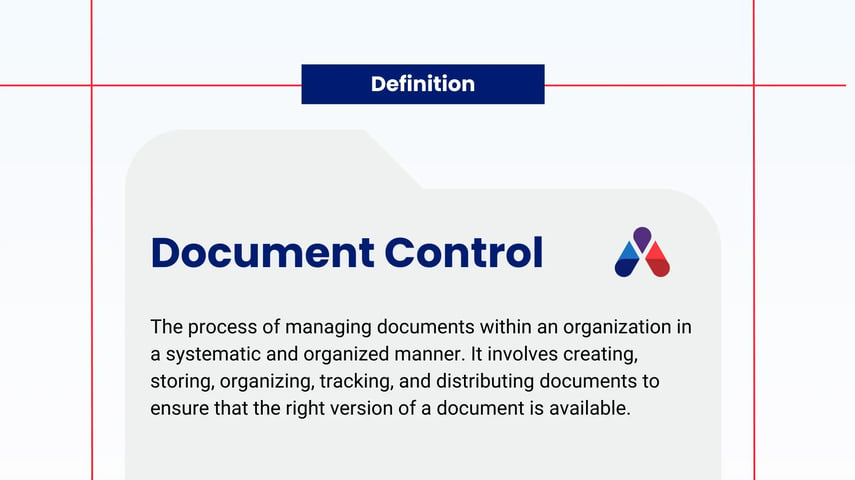
4 Ways to Shorten Project Turnaround Time with Engineering Document Management Software
Discover four ways Meridian EDMS’s document version control functionality can increase collaboration while decreasing project turnaround time.
Solutions
Workplace Management Solutions
Real Estate Management Solutions
Maintenance Management Solutions
Energy Management Solutions
Engineering Document Management Solutions
Asset Management Solutions
Automate campus scheduling for classes, meetings, and exams with our EMS software.
Plan and manage conferences effortlessly with EMS software to impress guests and streamline operations.
Boost workplace flexibility and maximize space use with seamless desk and room booking.
Organize workplace or campus events smoothly, creating memorable experiences.
Optimize workspace, manage allocations efficiently, and reduce costs with our space management solutions.
Deliver projects on time and within budget by improving communication, collaboration, and efficiency with our software.
Streamline lease accounting for ASC 842, IFRS, and GASB compliance.
Manage leases efficiently by tracking key dates, analyzing costs, and ensuring compliance.
Centralize data and analytics for better insights, faster negotiations, and revenue growth.
Centralize facility and asset maintenance, automate work orders, and ensure compliance with our CMMS software.
Extend asset life, reduce downtime, and prevent costly repairs with data-driven monitoring.
Prevent equipment failures and extend asset life by detecting and addressing issues early.
Make sustainable, cost-efficient energy decisions by monitoring and optimizing power consumption.
Remotely monitor and control equipment with real-time data to predict issues, boost efficiency, and reduce downtime.
Easily share and collaborate on documents, creating a single source of truth for engineers and contractors.
Manage and analyze assets across their lifecycle to schedule maintenance, reduce downtime, and extend lifespan.
Improve visibility, automate work orders, and ensure compliance for efficient facility and asset management.
Resources
Browse our full library of resources all in one place, including webinars, whitepapers, podcast episodes, and more.
Self-Service & Support
Looking for self‑service training, best practices, helpful videos, product resources, or support? You’re in the right place.
About Accruent
Get the latest information on Accruent, our solutions, events, and the company at large.

Learn everything you need to know about document control, including what it is and why it’s important. Discover the technology your firm needs to ensure your documents are organized and accurate.
Table of contents
Document control refers to the process of managing documents within an organization in a systematic and organized manner. It involves creating, storing, organizing, tracking, and distributing documents to ensure that the right version of a document is available to the right people at the right time.
Document control is vital for maintaining consistency, accuracy, and compliance with regulations and standards. To ensure the safety of your employees, enable collaboration, and maintain compliance with regulations, your employees and external contractors need to work from the most accurate and up-to-date documents.
However, with multiple teams working on these documents simultaneously, it can pose a challenge. By creating a centralized repository and following document control best practices, you can make a single source of truth for your employees and partners while remaining compliant with local and national regulations.

Document control involves processes, technology, and oversight to ensure documents are versioned appropriately and accessible to only those who need them. In addition to finding the right document control technology for your organization, your team will need to develop guidelines for every stage of the document lifecycle from creation to disposal.
These guidelines will ensure best practices are followed when creating, storing, editing, and deleting internal and external documents. Though document control programs may look different from organization to organization, here are a few things to keep in mind when building a document control program.
With the right tools, it’s easy to ensure documents are handled appropriately at each stage in the document lifecycle. Once your document repository is set up, be sure to educate your teams on document control best practices and company-wide document-management protocols.
Document management and document control are related concepts, but they have distinct purposes. Document management refers to the overall process of handling documents throughout their lifecycle.
The primary goal of document management is to ensure documents are organized, secure, and easily accessible to authorized users. It involves both physical and digital documents and covers a broad range of activities, including indexing, search capabilities, and collaboration features. Document management systems (DMS) are often used to streamline these processes.
Document control, on the other hand, is a specific subset of document management and focuses on the management of critical documents that impact an organization's processes, compliance, and quality management. Document control involves the creation, review, approval, distribution, and disposal of documents, and emphasizes the need for version control, change management, and strict adherence to regulatory requirements and industry standards.
This comprehensive pricing calculator is designed to provide you with a clear, customized cost breakdown for Meridian’s EDMS software.
A document control system can benefit various industries, especially those that deal with complex processes, strict regulatory requirements, and large volumes of documentation. Here are some industries that can significantly benefit from implementing a document control system:
Hospitals, clinics, and healthcare organizations deal with numerous patient records, medical reports, and compliance-related documents. A document control system ensures accurate documentation, patient confidentiality, and adherence to healthcare regulations.
Manufacturing companies often have extensive documentation related to product specifications, quality control procedures, safety protocols, and supply chain management. A document control system helps maintain consistency, traceability, and compliance with industry standards.
Engineering firms and construction companies handle blueprints, technical drawings, design documents, and safety guidelines. A document control system streamlines collaboration among project teams and ensures everyone is working with the latest versions.
Pharmaceutical companies must adhere to strict regulations and maintain comprehensive documentation throughout drug development, clinical trials, and production processes. A document control system helps manage and track these critical documents efficiently.
This industry requires meticulous documentation for design specifications, safety procedures, maintenance records, and compliance with aviation regulations. A document control system helps ensure compliance and safety standards are consistently met.
Financial institutions deal with vast amounts of sensitive data, legal contracts, compliance documents, and customer records. A document control system enhances security and facilitates audits and regulatory compliance.
IT companies benefit from document control systems for managing software development documentation, project plans, coding standards, and change management processes.
The energy sector involves intricate documentation for environmental regulations, safety protocols, and engineering designs. A document control system helps maintain operational efficiency and regulatory compliance.
Law firms and professional service providers deal with a vast array of legal documents, contracts, and client records. A document control system helps organize and manage these documents efficiently.
Government agencies and public sector organizations handle a wide range of administrative, legislative, and regulatory documents. A document control system ensures transparency, accountability, and adherence to legal requirements.
In general, any organization that deals with significant amounts of information and documentation can benefit from implementing a document control system. Such a system not only enhances efficiency and accuracy but also supports compliance with industry standards and regulatory bodies. It reduces the risk of errors, improves collaboration among teams, and facilitates seamless access to essential documents when needed.
Effective document control is essential for maintaining the integrity of information, minimizing errors, ensuring compliance, and supporting efficient workflows within an organization. It is particularly critical in industries with strict regulatory requirements, such as healthcare, finance, manufacturing, and engineering.
Any business looking to streamline and automate document management processes to make them more efficient and less error-prone can benefit from a document control system.
Meridian is a powerful solution designed to streamline and optimize the entire lifecycle of engineering documents and asset information. With Meridian, organizations can efficiently manage, track, and control critical documents, ensuring document version control, adherence to industry standards, and regulatory compliance.
Meridian’s intuitive interface facilitates easy collaboration and document retrieval, enabling teams to work seamlessly together. It offers robust security features, allowing for controlled access to sensitive information.
Whether used in engineering, construction, or other industries, Meridian empowers businesses to enhance productivity, minimize errors, and make informed decisions based on accurate and up-to-date document data. Learn more about our top-rated document management software or watch a demo today.
Discover four ways Meridian EDMS’s document version control functionality can increase collaboration while decreasing project turnaround time.
Learn about document version control and how Accruent software helps your team reduce errors, stay compliant, and manage changes with full ...
See how Seattle City Light Utilities implemented Meridian EDMS to attain document versioning control and data integrity over its 100 years’ worth of ...
Subscribe to stay up to date with our latest news, resources and best practices.
* To unsubscribe at any time, please use the “Unsubscribe” link included in the footer of our emails.